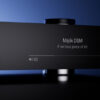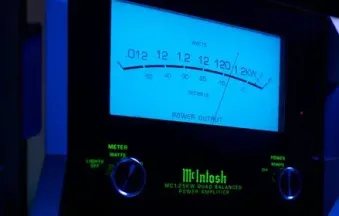No products in the cart.
Careful What Music You W(ai)sh For As Deezer Sounds Alarm
What if nearly one in five tracks on your favorite streaming platform wasn’t created by humans at all? That music you w(ai)sh for could increasingly be made by artificial intelligence. Deezer, a leader in hi-fi music streaming, has revealed that 18% of daily uploads—over 20,000 songs—are now fully generated by AI tools. As generative technology continues to evolve rapidly, this flood of synthetic content is sparking serious concern throughout the industry. Deezer is one of the few platforms actively addressing the issue, recognizing the threat AI poses to artists, rights holders, and the authenticity of the music experience. With detection technology capable of flagging tracks from AI tools like Suno and Udio—both facing legal challenges—the platform aims to preserve the integrity of curated music for its 9.7 million users.
To combat what it sees as a growing risk to both quality and fair compensation, Deezer recently ramped up its AI detection systems and removed a staggering 26 million “useless” or royalty-skimming tracks from its catalog. The streaming company introduced an innovative artist-centric royalty model in collaboration with Universal Music Group, rewarding professional artists while de-prioritizing algorithmic placement of synthetic or non-performative audio, sometimes dubbed “AI spam.” With top-tier artists and industry bodies sounding the alarm—warning that AI-generated music may compromise creators’ incomes by up to 24% by 2028—the urgency to establish boundaries has never been higher. Learn more about how AI is impacting the world of high-fidelity listening on our technology insights page.
While not all AI-generated music may be inherently bad, the scale and speed of its growth have raised alarm bells across the music tech landscape. Deezer’s efforts are intended to protect the delicate balance between innovation and authenticity, ensuring that listeners continue to enjoy the real, rich sound ecosystem they’ve come to trust. As the industry faces an inflection point, the message is unmistakably clear—when it comes to the future of sound, be cautious of the music you w(ai)sh for.
What if nearly one in five tracks on your favorite streaming platform wasn’t created by humans at all? That music you w(ai)sh for could increasingly be made by artificial intelligence. Deezer, a leader in hi-fi music streaming, has revealed that 18% of daily uploads—over 20,000 songs—are now fully generated by AI tools. As generative technology continues to evolve rapidly, this flood of synthetic content is sparking serious concern throughout the industry. Deezer is one of the few platforms actively addressing the issue, recognizing the threat AI poses to artists, rights holders, and the authenticity of the music experience. With detection technology capable of flagging tracks from AI tools like Suno and Udio—both facing legal challenges—the platform aims to preserve the integrity of curated music for its 9.7 million users.
To combat what it sees as a growing risk to both quality and fair compensation, Deezer recently ramped up its AI detection systems and removed a staggering 26 million “useless” or royalty-skimming tracks from its catalog. The streaming company introduced an innovative artist-centric royalty model in collaboration with Universal Music Group, rewarding professional artists while de-prioritizing algorithmic placement of synthetic or non-performative audio, sometimes dubbed “AI spam.” With top-tier artists and industry bodies sounding the alarm—warning that AI-generated music may compromise creators’ incomes by up to 24% by 2028—the urgency to establish boundaries has never been higher. Learn more about how AI is impacting the world of high-fidelity listening on our technology insights page.
While not all AI-generated music may be inherently bad, the scale and speed of its growth have raised alarm bells across the music tech landscape. Deezer’s efforts are intended to protect the delicate balance between innovation and authenticity, ensuring that listeners continue to enjoy the real, rich sound ecosystem they’ve come to trust. As the industry faces an inflection point, the message is unmistakably clear—when it comes to the future of sound, be cautious of the music you w(ai)sh for.













